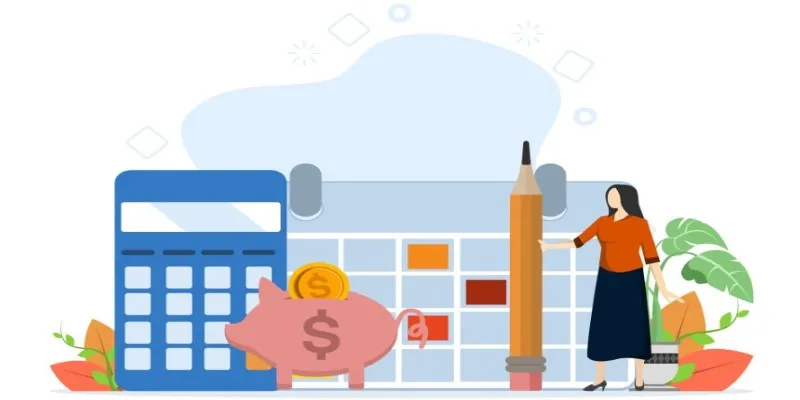Unlock Smart Investments: 6 Ways to Invest Using Your Bills
Most people view bills as unavoidable expenses, necessary burdens that come with living and working. But what if you could flip that perspective? Instead of just paying your bills, you could find ways to invest using them, making those outflows of cash work for you.

In a world where financial security is increasingly important, finding unique ways to save, invest, and grow your money can be a game-changer. With a few tweaks in how you approach your monthly bills, you can open up new avenues for financial growth and wealth accumulation. Here are six ways to do just that, leveraging everyday payments to enhance your investments.
Transform Your Bills into Investment Gains
Investing using your bills refers to leveraging your regular, recurring expenses—such as utilities, internet, or medical bills—to build wealth. Instead of viewing bills as mere payments, this approach allows you to turn them into investment opportunities.
Methods include using cashback rewards from credit cards, round-up apps that invest spare change, enrolling in auto-pay discounts to save and invest the difference, or even purchasing stocks in companies you pay regularly. By adopting these strategies, you can grow your wealth passively while handling everyday expenses, transforming bills into a tool for long-term financial growth.
6 Clever Ways to Make Your Bills Work for You
Here are six clever ways to make your bills work for you, helping you optimize your expenses and even save money in the long run:
Round-Up Investments Through Payment Apps
One of the simplest ways to invest while paying your bills is by using payment apps that offer round-up features. These apps automatically round up your bill payments to the nearest dollar and invest the difference. While this may seem like a small change, these micro-investments can add up over time.
Payment platforms like Acorns have made this feature popular, allowing users to accumulate funds effortlessly. Every time you pay a utility bill or a streaming subscription, a small amount is added to your investment portfolio. This technique leverages your spending habits to gradually build up your investments without requiring additional effort.
Cashback on Bills with Rewards Cards
Many credit cards offer cashback on purchases, and some of these perks apply to paying bills. Using a rewards card that gives cashback on utilities, internet, and phone services is a way to indirectly invest through your bills. You can funnel the cashback into a savings or investment account, turning what would normally be a sunk cost into potential gains.

To maximize this strategy, look for cards that provide higher cashback rates on recurring expenses. Once the cashback is credited, you can allocate that amount toward your investment portfolio, increasing your returns over time.
Auto-Pay Discounts for Long-Term Savings
A less obvious way to invest through your bills is by enrolling in auto-pay for recurring payments. Many service providers offer small discounts if you set up automatic payments.
While the savings may seem insignificant, over time, these amounts can grow. The money saved on each bill can be allocated to an investment account. Setting up auto-pay also minimizes the risk of late fees, ensuring you can redirect any potential penalty costs into growing your financial portfolio. This strategy offers a hassle-free way to stretch your dollars further and accumulate wealth without any extra effort.
Investing in Utility Companies You Pay
Another way to invest using your bills is to buy shares of the companies you’re already paying. For example, if you consistently pay an energy or water utility company, why not consider purchasing its stock? This gives you the opportunity to benefit from the company’s growth while continuing to pay your regular bills.
While this approach requires some upfront investment, it can pay off long-term if the companies perform well in the market. This is particularly attractive for essential services, which tend to have stable long-term growth. By becoming a shareholder, you align your spending with your investment strategy.
Green Energy Programs and Investment Returns
Many utility companies now offer green energy programs that allow consumers to invest in renewable energy projects. This can be a smart way to invest while also paying your bills. By enrolling in these programs, part of your utility payment may go towards funding clean energy initiatives like solar or wind energy.

Some programs offer financial returns on these investments, meaning you not only support sustainable projects but also potentially earn back a percentage of your investment. This dual benefit—helping the environment and growing your wealth—makes it an attractive option for many.
Health Savings Accounts (HSAs) for Medical Bills
If you have recurring medical bills, consider setting up a Health Savings Account (HSA). HSAs allow you to set aside pre-tax dollars to pay for qualified medical expenses. While the immediate benefit is saving on taxes, many HSA providers also allow you to invest the funds in stocks, bonds, or mutual funds.
This means that as you contribute money to cover medical bills, those funds can grow tax-free over time. HSAs are particularly useful because the funds roll over year to year, allowing your investment to grow while ensuring you’re prepared for any future healthcare expenses.
Conclusion:
Paying bills doesn’t have to be a financial dead-end. By using creative strategies like cashback rewards, round-up investments, and even investing directly in the companies you pay, you can transform your regular expenses into opportunities for growth. These six ways to invest using your bills are simple but effective methods to gradually build wealth.
Whether you’re using payment apps or exploring green energy programs, the key is to shift your mindset from seeing bills as just expenses to viewing them as potential investments. Over time, these small changes can add up, providing a solid foundation for your financial future.


